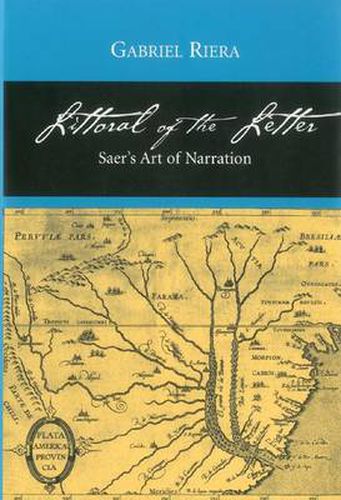Readings Newsletter
Become a Readings Member to make your shopping experience even easier.
Sign in or sign up for free!
You’re not far away from qualifying for FREE standard shipping within Australia
You’ve qualified for FREE standard shipping within Australia
The cart is loading…






Littoral of the Letter is the first full-fledged study in English of the world of the late Argentine author Juan Jose Saer (1937-2005), who was highly regarded as Argentina’s best living novelist, a continuator of Burgess’s literary legacy. Characterized by an uncommon coherence and rigor, Juan Jose Saer’s writing defies simple categories. In both his fictional and essayistic writing Saer defamiliarizes the reader by questioning some of the most cherished certainties, especially those having to do with the role ascribed to Latin American literature, the uses of prose and poetry in the present, and the relation between language and the mass media. By questioning the assimilation of prose theory and the novel theory dictated by pragmatic needs of the state and the market, Saer produces a change in the function of narrative language that allows him to start where more traditional forms of realism end: the unsayable. The purpose of this book is to make explicit Saer’s procedures, the main coordinates of his poetics and to reflect on the situation of literature in an age dominated by images and the ‘total’ cultural phenomenon.
$9.00 standard shipping within Australia
FREE standard shipping within Australia for orders over $100.00
Express & International shipping calculated at checkout
Littoral of the Letter is the first full-fledged study in English of the world of the late Argentine author Juan Jose Saer (1937-2005), who was highly regarded as Argentina’s best living novelist, a continuator of Burgess’s literary legacy. Characterized by an uncommon coherence and rigor, Juan Jose Saer’s writing defies simple categories. In both his fictional and essayistic writing Saer defamiliarizes the reader by questioning some of the most cherished certainties, especially those having to do with the role ascribed to Latin American literature, the uses of prose and poetry in the present, and the relation between language and the mass media. By questioning the assimilation of prose theory and the novel theory dictated by pragmatic needs of the state and the market, Saer produces a change in the function of narrative language that allows him to start where more traditional forms of realism end: the unsayable. The purpose of this book is to make explicit Saer’s procedures, the main coordinates of his poetics and to reflect on the situation of literature in an age dominated by images and the ‘total’ cultural phenomenon.